Center for Emission Control Karlsruhe
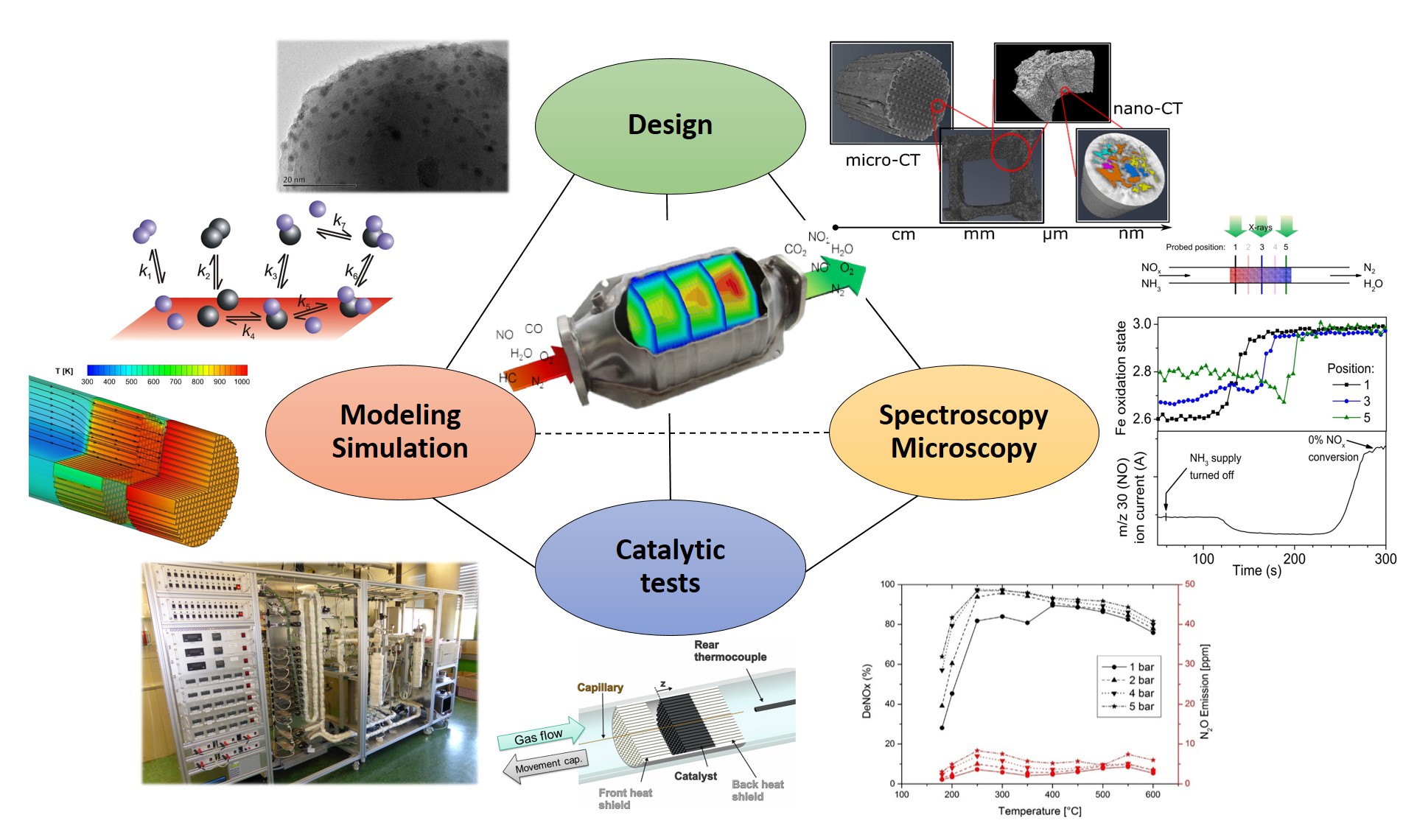
The Center for Emission Control Karlsruhe is one of the largest research organizations in Germany exclusively dedicated to the catalytic removal of pollutants. Founded in 2010 as an interdisciplinary organization at the Karlsruhe Institute of Technology, Germany, the center brings together the catalysis research groups from the Institute for Chemical Technology and Polymer Chemistry with complementary expertise ranging from catalyst preparation and testing to in-depth characterization, modeling and simulation of chemical reactions and transport phenomena. Herewith, all length-scales relevant for emission control are considered, starting from an atomic-level understanding to design of full-scale realistic catalysts and reactors.
News
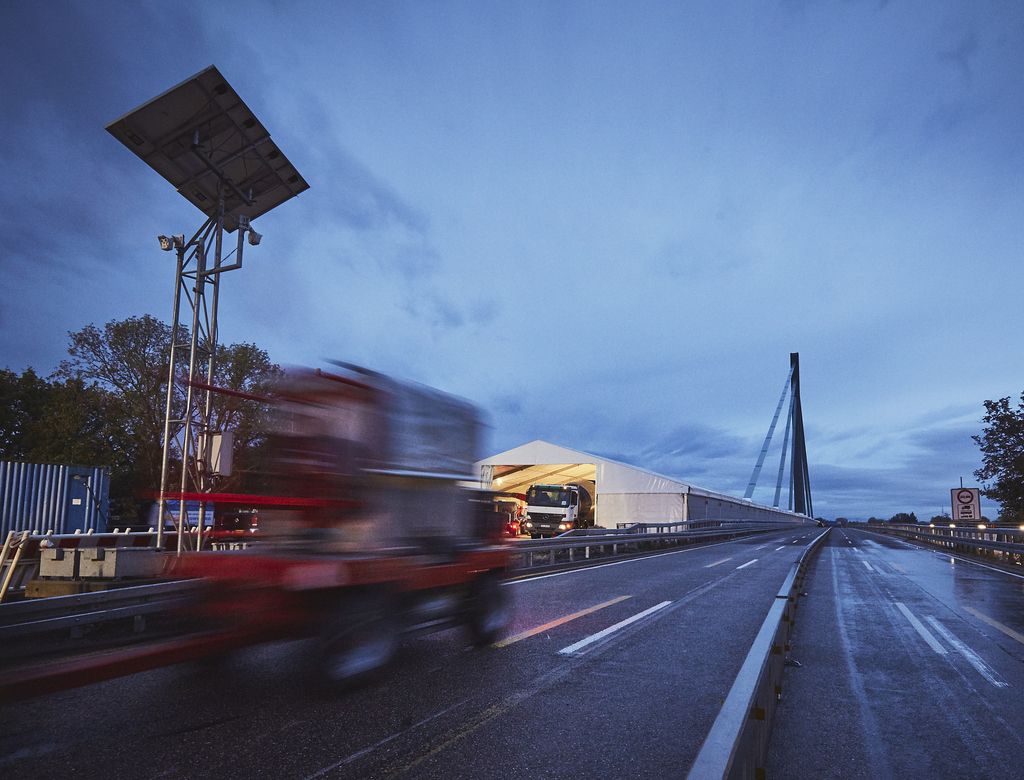
An interdisciplinary consortium of partners from industry and academia aims at developing robust hydrogen combustion engine applications that allow to decarbonize the off-road sector. We are happy to contribute to these efforts with the development of innovative catalysts for efficient emission control. November 2024.
more information
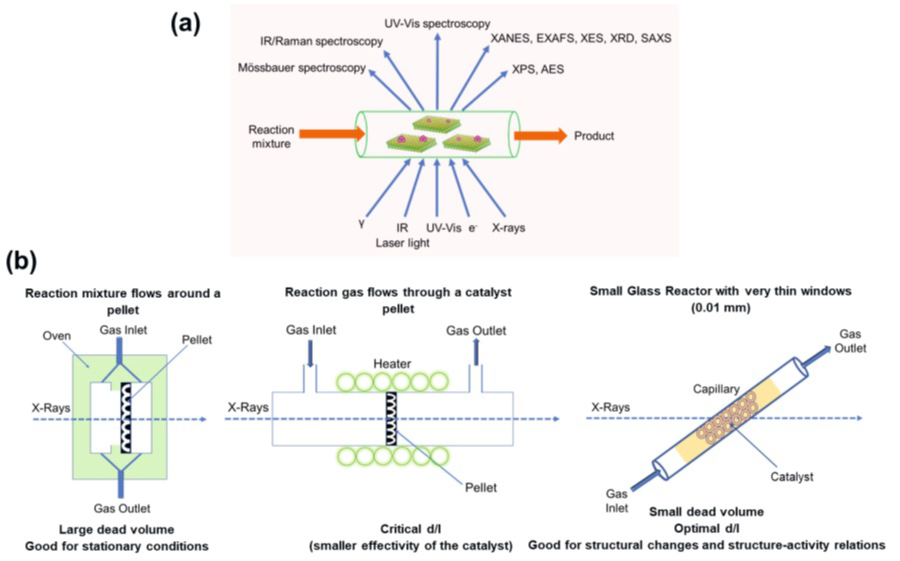
Bidyut Bikash Sarma and Jan-Dierk Grunwaldt show in their new publication in CHIMIA that for understanding the catalyst system under true reaction conditions, operando spectroscopy is the key to unravel small changes, which can ultimately lead to a significant difference in catalytic activity and selectivity. June 2024.
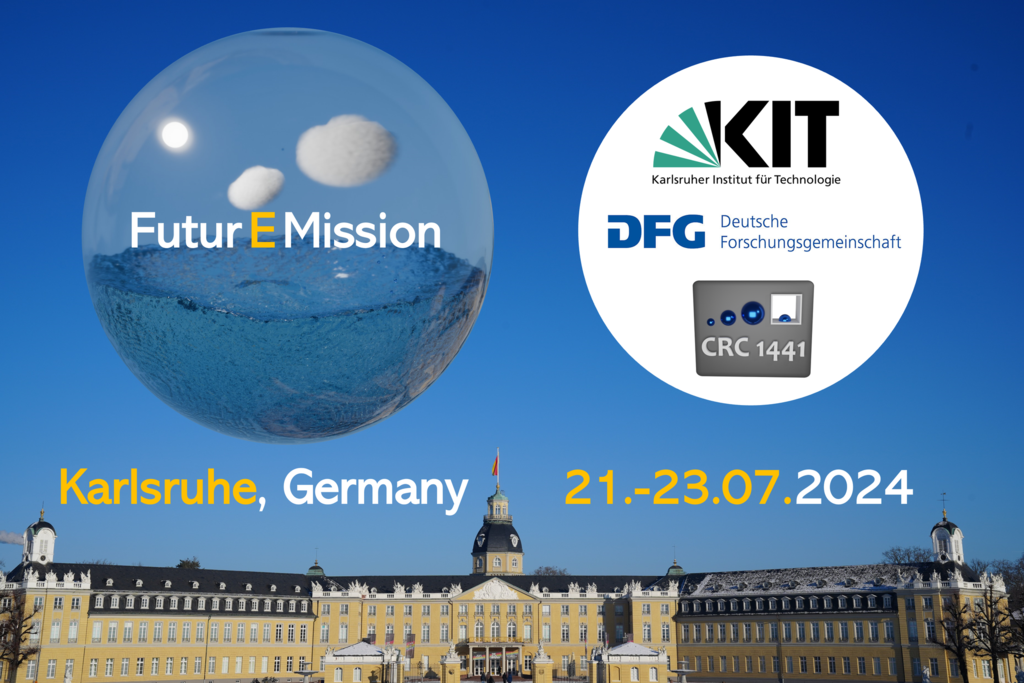
Emission control is recognized as a technology that is traditionally very important for clean air and will enable progress in other areas - most notably the energy transition, which is considered one of the most pressing issues of our time. In the 2-day conference we aim to bring together the international community in the field of emission control and to present and discuss new challenges, concepts and solutions in the scientific field. April 2023.
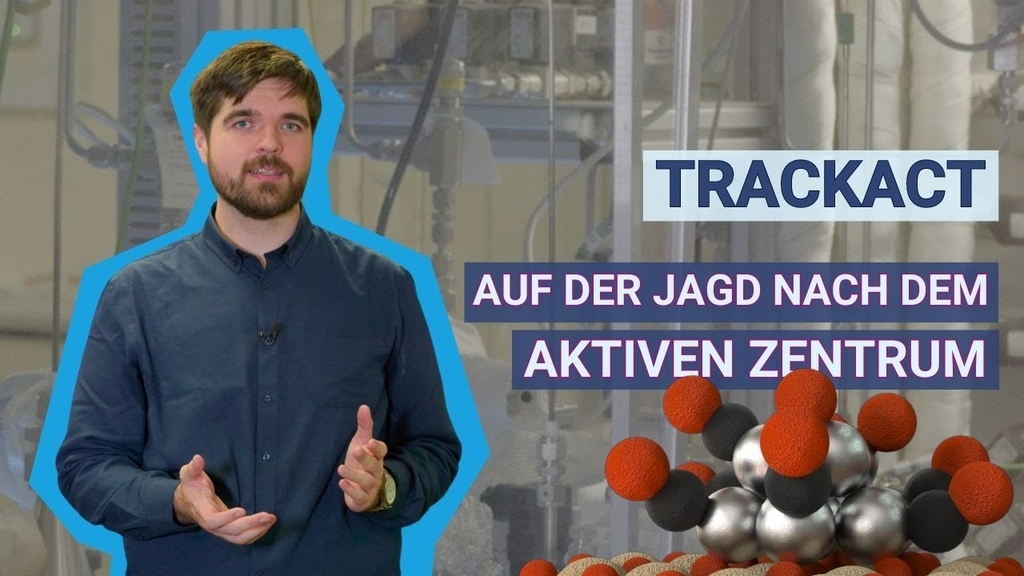
How do catalysts work and what do they look like during the reaction? These are the key questions for the development of efficient catalytic processes, the understanding of which is the ultimate goal of the interdisciplinary Collaborative Research Center (CRC) TrackAct. The CRC is presented in a video. March 2024.
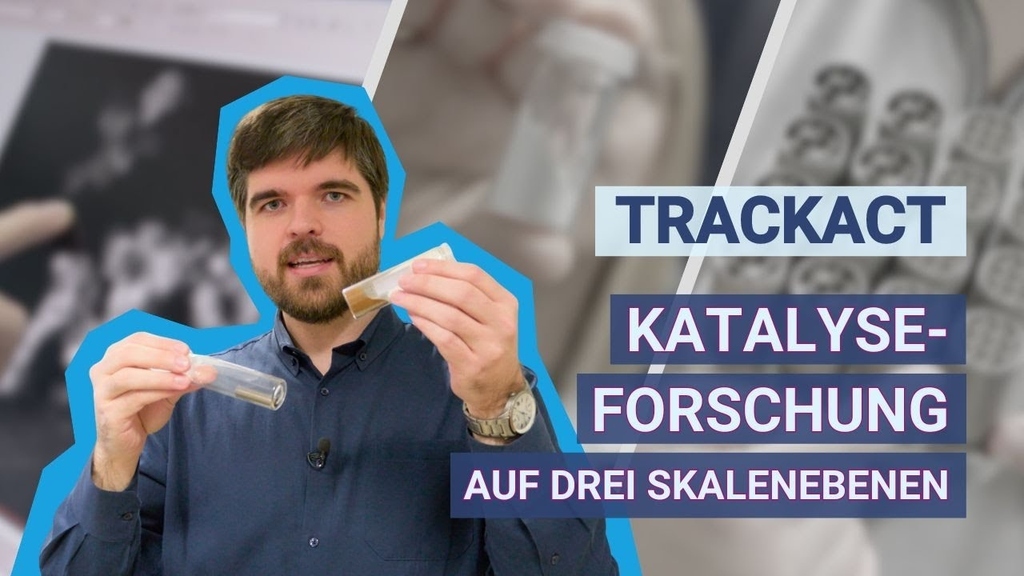
Numerous members of the Center for Emission Control Karlsruhe are engaged in the Collaborative Research Center TrackAct. Get to know the different departments in a video! Herein, scientists of different departments present their work - from catalysts in the microcosm to hand-sized, applied catalysts. March 2024.
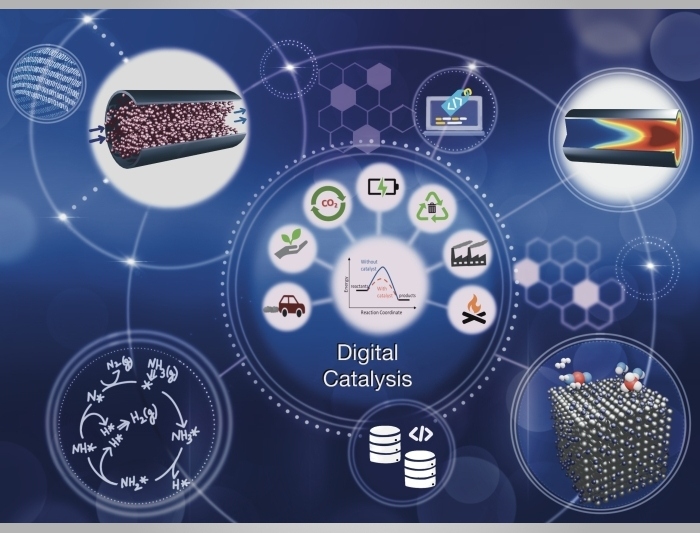
Rinu Chacko et al. published an invited concept paper on Interconnected Digital Solutions to Accelerate Modeling of the Reaction Kinetics in Catalysis in ChemCatChem. The article highlights tools for efficient storage of research
data, establishment of automated workflows, algorithms for advanced model development for catalytic reaction systems such as Adacta, CaRMeN, DETCHEM, RMG. March 2024.
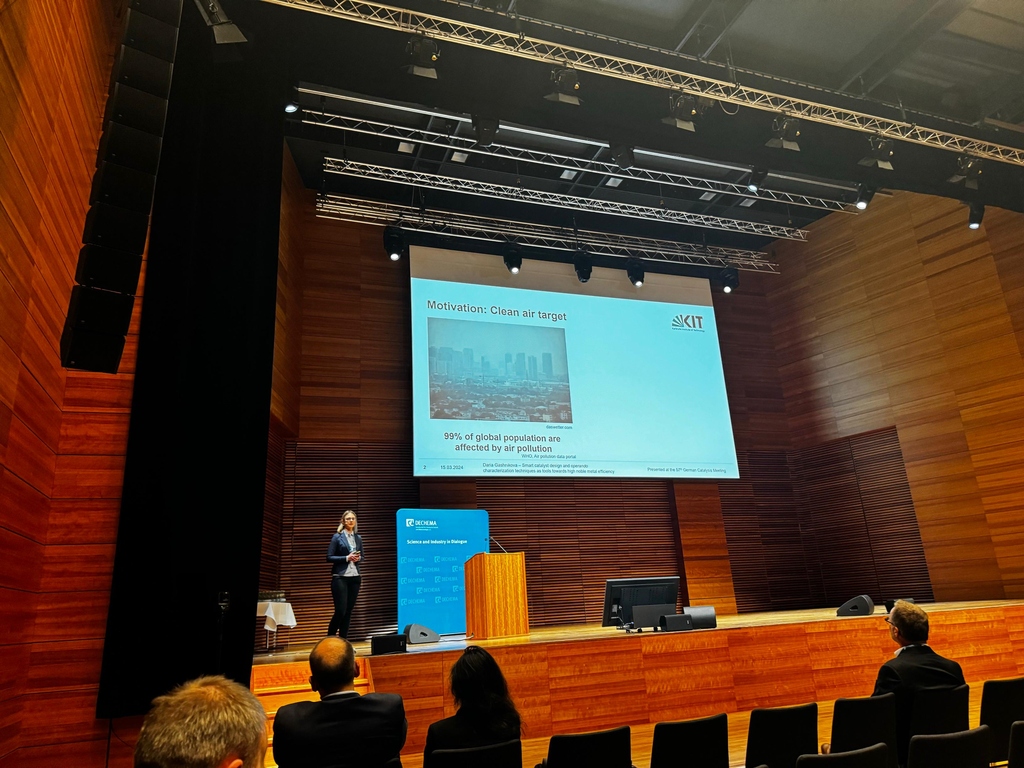
Several members of the Center for Emission Control Karlsruhe contributed to the 57. Jahrestreffen Deutscher Katalytiker in Weimar with posters and talks. In particular, Sofia Angeli gave a talk on “Towards digitalization of the microkinetic modeling workflow: Example NH3 decomposition” and Daria Gashnikova on “Smart catalyst design and operando characterization techniques as tools towards high noble metal efficiency”. March 2024.
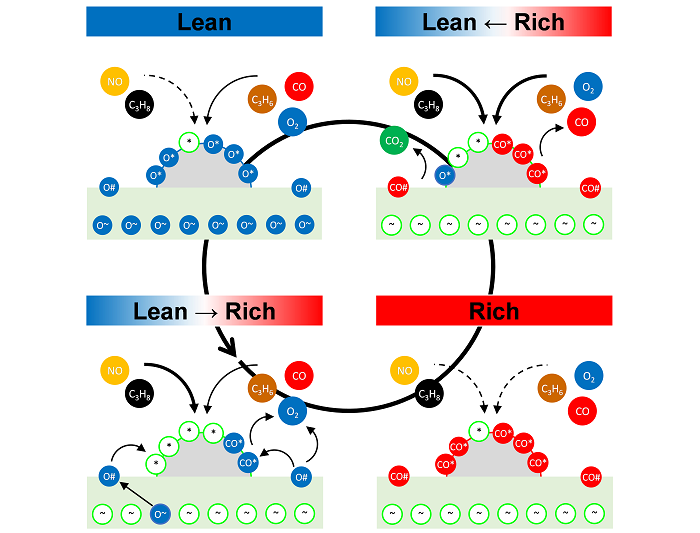
In collaboration with the Waseda University in Tokyo and Japanese automobile manufacturers, a new process has been developed to increase the efficiency of the three-way catalytic converter in a hybrid-electric vehicle at low exhaust temperatures. Inhibition of the catalytic converter by blocking the active sites at low temperatures can be prevented by periodic lean-rich switches of the exhaust gas. The work contributes to a better understanding of periodic processes in exhaust gas catalysis and has recently been published in Appl. Catal. B: Environ. January 2024.
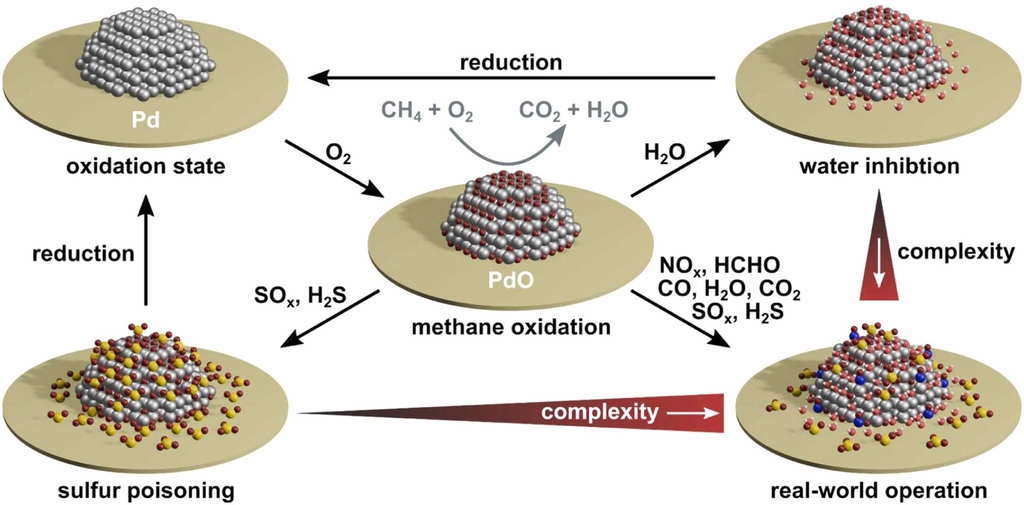
In a new review article, several colleagues summarized the main challenges for the efficiently controlling emissions from lean-burn natural gas engines. The article was recently published in Appl. Catal. B. (Lott, Patrick, et al. "Exhaust gas after-treatment of lean-burn natural gas engines–from fundamentals to application." Applied Catalysis B: Environmental (2023): 123241.) October 2023.
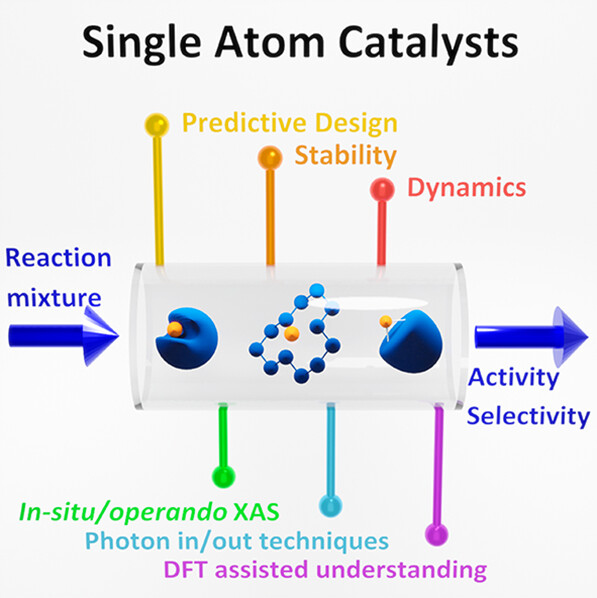
The potential of operando X-ray techniques for following the structure and fate of the active species in single-atom catalysts is highlighted in the new review published by Bidyut Bikash Sarma et al. in Chemical Reviews. November 2022.
We will be at the 55. Jahrestreffen Deutscher Katalytiker in Weimar with a talk given by Maria Casapu on “Noble metal particle size and support morphology effects on emission control by mono and bimetallic catalysts” as well as many interesting poster presentations. We are looking forward to inspiring discussions. See you there! March 2022.
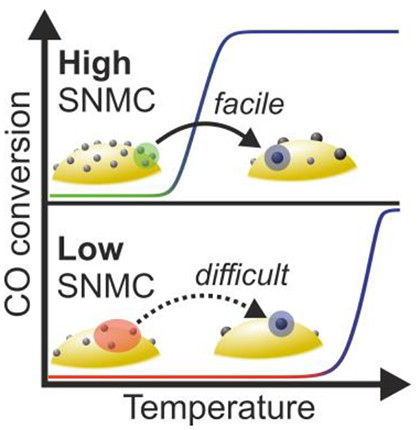
In their recent paper in ASC Catalysis, Maurer et al. show that Pt diffusion barriers for cluster formation decrease with increasing the surface noble metal concentration (SNMC) on ceria, promoting more facile agglomeration of highly active metallic Pt particles. February 2022.
We will contribute to the 27th North American Catalysis Society Meeting in New York with several posters and talks on the topics methane oxidation, selective catalytic reduction of NOx with H2, secondary emissions, and NOx storage catalysts. We are looking forward to inspiring discussions. See you there! February 2022.
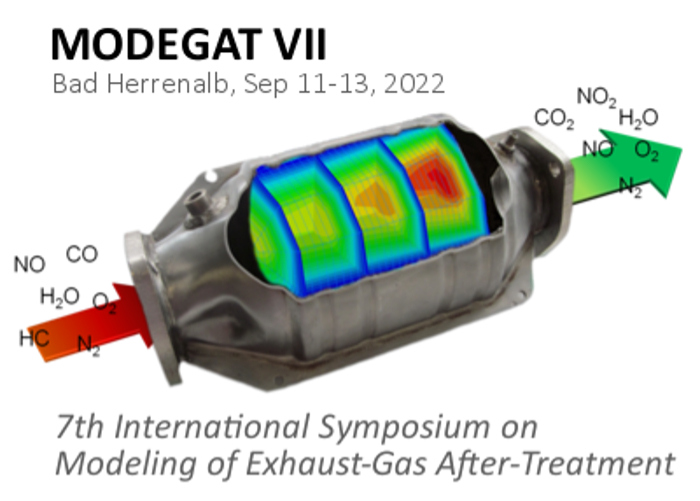
MODEGAT VII, the 7th International Symposium on Modeling of Exhaust-Gas After-Treatment took place in September 2022 in Bad Herrenalb/Karlsruhe, Germany. Special focus topics were (among other related topics): SCR of NOx, Three-Way Catalysts, Gasoline Particle Filters, Digitalization: Machine Learning and Control systems, Novel Power Trains: Hybrid vehicles, Fuel cells, Hydrogen fueled engines, and Emission control of non-mobile systems: Chemical, Steel and other industries. MODEGAT VIII is planned for September 21-23, 2025. More on modegat.org. December 2022.
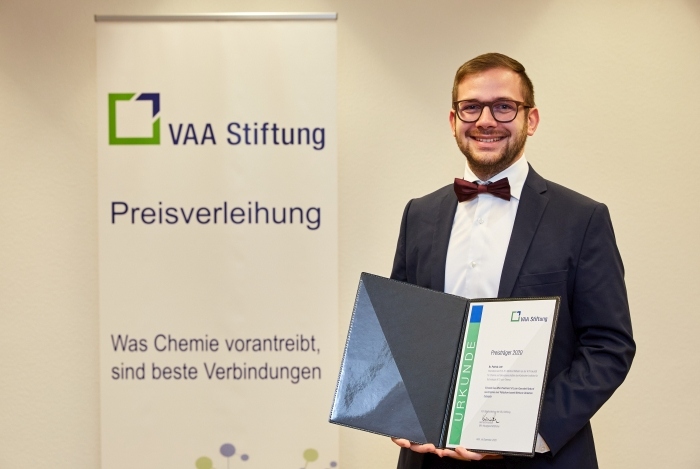
Deutschmann group Senior Scientist Dr. Patrick Lott received the Excellence Award of the VAA Foundation during a small, festive ceremony in Cologne. The prize, which is endowed with € 5,000, is awarded once a year in recognition of outstanding dissertations with industrial application relevance. December 2020.
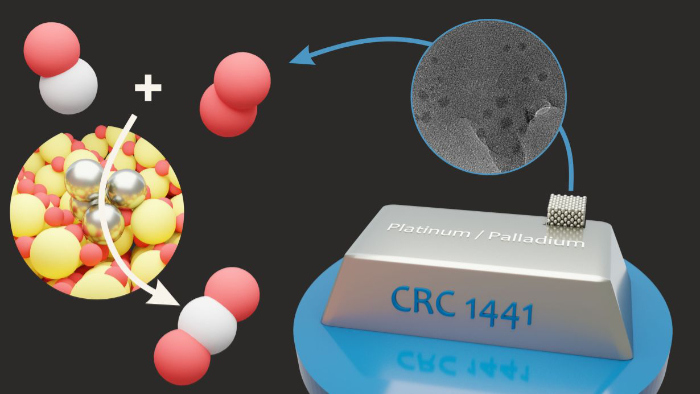
The DFG funds a new Collaborative Research Centre (CRC 1441) “Tracking the Active Site in Heterogeneous Catalysis for Emission Control” (TrackAct) for the understanding of catalytic processes. The vision of TrackAct is to design noble metal catalysts with atomic precision and to monitor and control the active site in the reactor and the technical application. December 2020.
